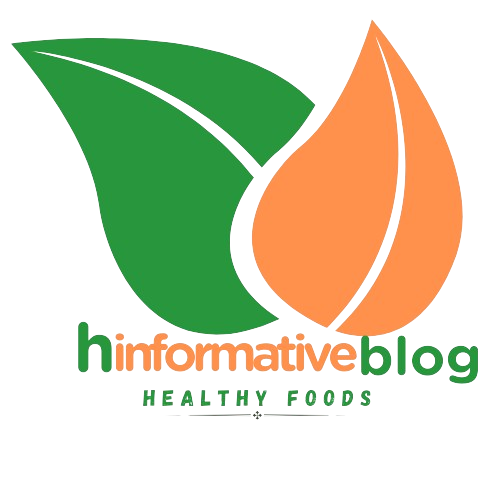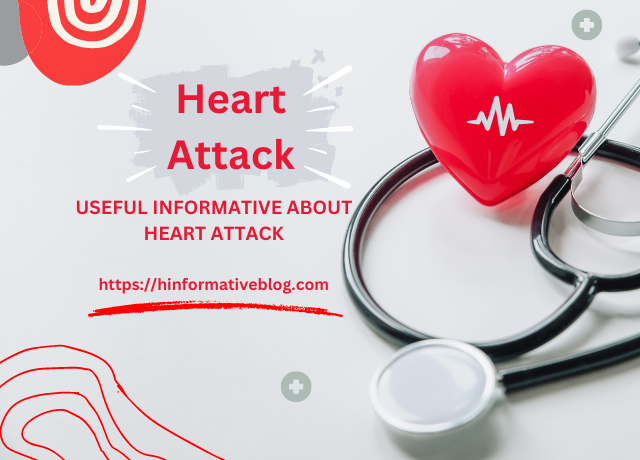Heart Attack
A blockage of blood flow to the heart can cause painful damage to its muscles. This damage makes them very painful. A blocked heart causes serious pain, known as a Heart Attack. This is a serious condition.
It quickly needs help. Heart Attack happens when something blocks the flow of blood in the heart. It causes awful pain.
Disease of the Blood Vessels

- Narrowing of the heart arteries leads to less blood supply.
- Symptoms include angina or chest pain. Doing heavy exercises can cause disease of blood vessels.
- Diabetes can also cause Heart Attacks.
- High Blood Pressure can cause a Heart Attack.
- Doctors use various test methods to examine coronary artery disease. These include ECG, angiography, and stress tests.
High Blood Pressure (Hypertension)
High blood pressure is one of the major disease that leads to Heat Attack. Some of the diseases that occur because of high blood pressure are as follows:
- Blood vessels are not controlled. They are over-pressurized. They can cause harm.
- Sometimes without symptoms. Severe cases have headaches or dizziness.
- Raises the risk of heart disease, stroke, and kidney problems.
Heart Failure

Heart failure occur when blood cannot be pumped by the heart properly. Fatigue, swollen legs, and difficulty in breathing are among the symptoms. Also, High blood pressure, diabetes, and valve issues cause Heart Attack.
Risks include sex, age, family history, and weight gain. Check heart health with ultrasound scans, ECGs, and blood tests. Serious issues include fluid buildup. Also, infections affect the kidneys. They can cause deadly heartbeats.
Irregular Heartbeat (Arrhythmia)
A heart that does not beat regularly means its system is out of control. Heart disease, high blood pressure, and stress can lead. Diagnosis is done through ECG, stress tests, and EPS (Extrapyramidal side effects). Possible issues that causes Heart Attack include stroke, heart failure, and fainting. Heart issues can be managed with surgery or blood thinners. You can maintain heart health by checkups. Avoid smoking, and manage stress. Also, consult with a healthcare provider.
Heart Valve Disease
Your heart is in good health when it beats regularly. The reasons for Heart Attack, and stress is high blood pressure. It may consist of tiredness, chest pain, shortness of breath, and a fast heartbeat. Doctors can detect abnormal heartbeats. They use monitoring devices. Possible issues are heart failure, fainting, and stroke.
Treatments include medication, heartbeat correction, and, at times, heart rate monitoring. Keep yourself updated with regular checkups. Avoid smoking, and manage stress to handle arrhythmia (irregular heartbeat).
Genetic Heart Defects
The best type of care for oneself enables the person with the condition to live well. Circulation problems occur due to heart chamber holes. After birth, the ductus arteriosus (connects two major arteries) remains open blocks normal blood flow.
Tetralogy is four heart defects, including a ventricle hole. The positions of the aorta and pulmonary artery were changed. The narrowing of the aorta limits blood supply to the body. Heart circulation is affected due to improper formation of the heart valve.
Cardiomyopathy
These affect heart structure, valves, or blood vessels, causing problems. Heart issues present at birth vary in severity, from structural to functional. Types of heart issues affecting blood flow speed between chambers.
Tetralogy is a combination of four heart issues affecting oxygen-rich blood flow. The aorta narrows. It limits blood flow. PDA (patent flow arteriosus) affects fetal vessel function. Infection of the heart lining, known as pericarditis
Pericarditis infection of the heart disease
It can result from infections, autoimmune diseases, or Heart Attacks. Pericarditis leads to chest pain due to infection around the heart. Symptoms include fever, chest pain, fatigue, and difficulty breathing lying down.
Infection can result from viruses, autoimmune disorders, or post-heart attack issues. It includes heart ultrasound, periodic fluid checks, and regular check-ups. The treatments are antibiotics for bacteria, NSAIDs for infections, and rest for management.
Angina (Chest Pain)

When the heart lacks oxygen, it causes chest pressure known as angina. Understand the chest pain spreading to arms, shoulders, and neck, with nausea or breathlessness. Angina indicates coronary artery disease from blocked arteries. The diagnosis is based on tests. Like angiogram imaging, stress testing, and ECG.
Increase blood flow by nitroglycerin. It helps to expand blood arteries. For heart repair in extreme situations, doctors choose bypass surgery or angioplasty.
Atrial Fibrillation
Fibrillation is a medical term that is used to describe an irregular heartbeat. The symptoms include a chest ache, fatigue, vertigo, and shortness of breath. Treatment includes regulating heartbeat via cardioversion, medication, and removal.
AF can be treated by changing lifestyle. Do not use alcohol, manage stress, and stop smoking. Visit your doctor for regular check-ups.
When the heart valve does not work, the condition is called heart valve prolapse. There are only a few signs of heart valve prolapse. It is not serious. But when the heart valve closed. I can cause serious Heart Attacks. The signs can include pulse, shortness of breath, and chest pain. It was diagnosed with a heart problem after heart exams and ultrasound scans.
One of the treatment is to manage symptoms while preventing further problems. If the symptoms appear painful. Medications can be given. Surgery is very common. But could be considered for serious situations needing valve repair. A routine heart inspection ensures it works well and keeps symptoms in check.
Pulmonary Hypertension
Arterial lung hypertension causes Heart Attack. These could start from heart or lung diseases, genetics, or unknown factors. Patients require heart ultrasounds and right heart procedures for proper diagnostic evaluation.
Treatment includes medications, lifestyle changes, and oxygen therapy suited to individual needs. When it is monitored regularly, treatment will be effective.
Cardiac Arrest
Heart stops pumping blood due to Cardiac Arrest hence needing fast medical attention. Heartbeat issues or oxygen loss may stem from diseases. Signs include inability to respond, absence of breathing, and pulse to survive.
Start CPR quickly to maintain blood flow, then save. Patients in custody receive thorough care, treatment, and present medical attention. People prevent issues by changing lifestyles and managing heart risks.
Aortic Enlargement
Aorta, the body’s main blood vessel, grows slowly. It may burst, forming an aortic aneurysm that swelling. There are many symptoms of aortic breakdown. Such as sudden chest pain, sharp back pain, or a pulse near the abdomen.
One should use an ultrasound or CT scan to find an aneurysm (enlargement). This can show if it is large enough to soon break down. Treatment options may be considered by size and health. Also, monitor, surgery, and stent can be added.
Heart Murmur
Kids and teens may have innocent heart murmurs. Normal movements in heart valves can cause murmurs. Temporary heart murmurs may result from fever, pregnancy, anemia, or thyroid issues. Valve blockage narrows heart valves, causing murmurs due to age or congenital factors. The valve has swallowing. It does not close tightly, so blood leaks. This happens due to infections or structural issues.
Muscular Heart Disease
Muscular fever in its turn can destroy heart valves as well as other tissues. When flow towards the left ventricle is blocked, then blockage formed. The valve opening is becoming narrower. It decreases blood circulation in the whole body. When the valve does not close properly then blood in the left atrium flows backward. The aortic valve closes properly. It closes from the left ventricle.
Top Foods That Reducing Heart Attack Risk

Useful foods are highly valuable in lowering the risk of a heart attack. Such as Oats, are full of fiber. It helps lower cholesterol levels. A rich diet of oats can heavily reduce the chance of artery blockages. Blockage in arteries is a common cause of heart attacks.
Fish contain fats. Eat fatty fish, like salmon and mackerel, for heart health. Omega-3 fatty acids are present in fish. It reduces infection and lowers blood pressure. Regular intake of fatty fish can help control heart attacks. It keeps the cardiovascular system functioning perfectly.
Eat green vegetables, such as spinach and kale, to maintain a healthy heart. These vegetables are full of vitamins, minerals, and antioxidants. They improve blood circulation and reduce stress. The use of green vegetables in a diet including more leafy greens can be simple. Yet effective way to protect against a heart attack.
Conclusion
It is knowing the causing conditions and signs of a Heart Attack. The majority of these causes are curly and need thorough understanding for prevention and early treatment. A Heart Attack takes place when the blood supply is blocked. Most often due to a blood clot. However, everybody must know the risk factors that are related to it.
Also, there is a chance problems in identification. Make changes in lifestyle and knowledge related to heart health. Primarily, it is visible that the incidence of experiencing Heart Attack can be seriously reduced by persons.
Frequently Asked Question
What condition is a heart attack?
A blocked artery causes heart muscle damage. This damage leads to chest pain. Pains may lead Heart Attacks.
What are the symptoms of a heart attack?
Chest pain. It is hard to breathe. You feel sick and sweaty.
What are some specific foods that reduces risk of heart attack?
Foods that help to control a heart attack include oats, fatty fish like salmon and mackerel. Use leafy green vegetables such as spinach and kale. Oats are full of fiber. You can include these foods in your diet can lowers the risk of a heart attack.
What do you do during a heart attack?
Call emergency. Chew aspirin if they advise it. Then, rest.
How to prevent heart attacks?
Make physical activity a habit. Have a proper diet. Control your stress and quit tobacco.









